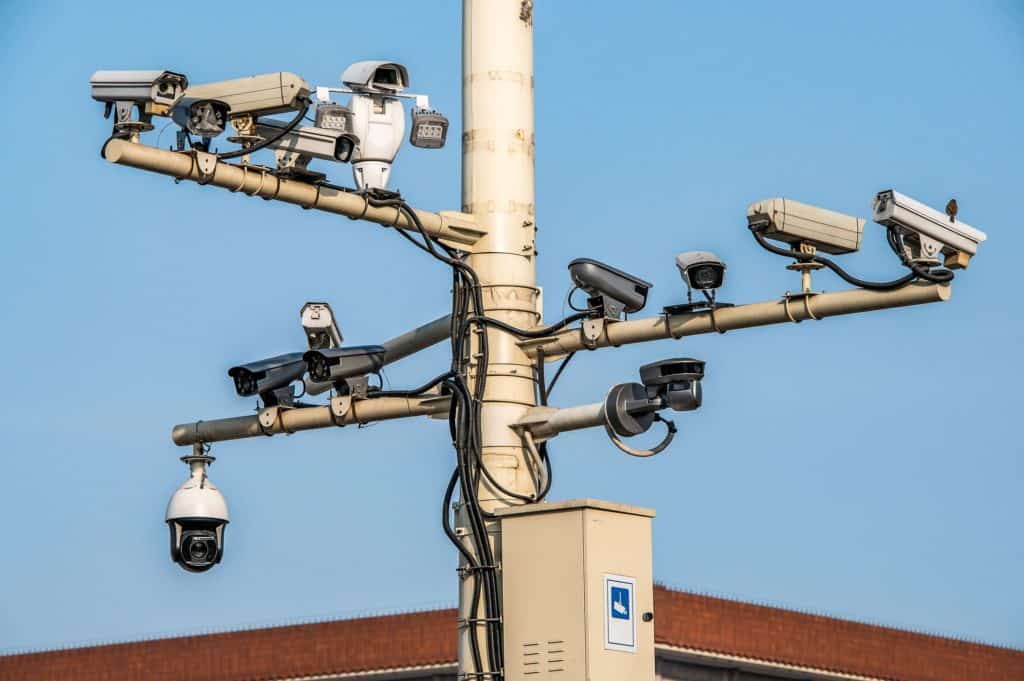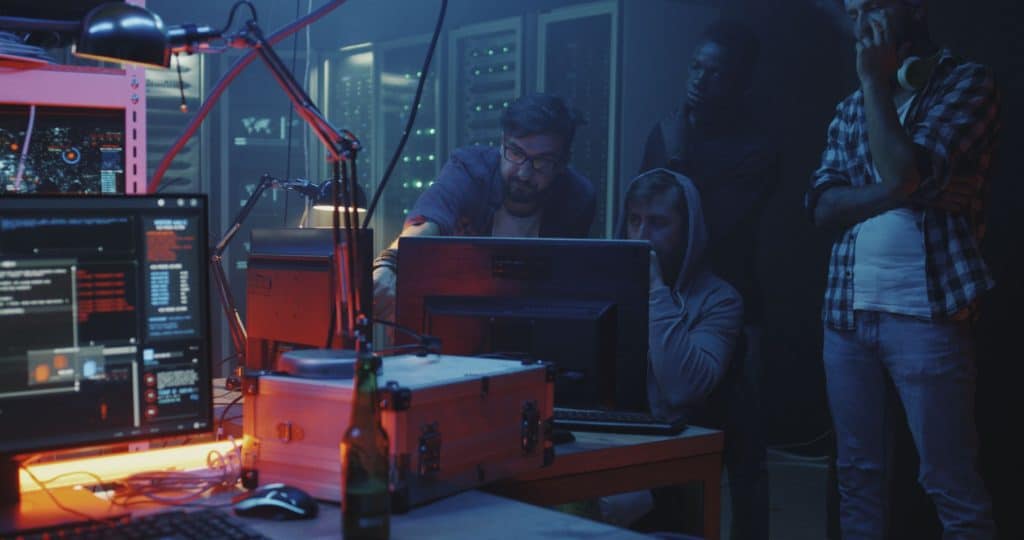Online privacy has become a hot-button issue in recent years, with more and more personal information being shared online. In this post, we'll discuss the risks of not having online privacy, the benefits of having it, and how to protect it.
First, here is a summary table of why your online privacy is important.
| Privacy Factor | Risks of Lack of Online Privacy | Benefits of Online Privacy |
| Digital footprint | Have a large attack surface for identity theft and financial fraud | Have a small digital fingerprint |
| Marketer tracking | Rampant targeted advertising | Reduced online tracking and manipulation |
| Social Reputation | -More likely to indulge in excessive sharing of private information. -Likely to participate in comparison culture and social reputation scoring on social media networks | Grow healthy online relationships |
| Government censorship and control | Government has easy access to personal information and online activity | Using online privacy tools like VPNs helps avert pervasive government control and censorship |
| Law enforcement/ Civil rights | Have personal information stored on the cloud or with companies that can be compelled by law enforcement to hand over their data. | Uses applications that use end-to-end encryption to protect personal information from legal requests. |
| Cybercrime | High risk of falling prey to identity theft, financial fraud, spam, scams, and cyberstalking | Protection from a myriad of cybercrimes |
| Self-expression & growth | Stifles self-expression and growth | Allow one to freely evolve their beliefs without having the pressure to justify to an audience |
Let's define these seven essential digital privacy points in more detail. We've laid out actionable steps on what you can do to take control of your internet privacy.

1. Personal Digital Space
People need personal digital space to create, consume, and store data privately.
More Detail
Your home is an essential private physical space where you can relax, entertain, and attend to life's necessities.
Having privacy in your digital spaces is equally vital. Online privacy ensures we have places to create, think, explore, and learn without the intrusion or judgment of outside influence.
Previously limited to the physical world like schools and work, interconnected computers and mobile phones give us virtual spaces to attend to our minds and transact with each other at any time and any place.
Unlike your private physical space like the home, the digital realm is almost infinitely large.
Tip: Increase your digital security by reducing your digital footprint
What You Can Do: Reduce Your Digital Footprint
The best way to begin protecting your internet privacy is by limiting your digital footprint. Security researchers also refer to your digital footprint as an attack surface. It's the number of possible points where an attacker can gain access to your information.
You can reduce your attack surface by:
Limiting the number of new online accounts you open. For example, pause to consider the importance of a new website or service before signing up.
Bringing online data offline. For example, pull photos to local storage and closing online accounts leveraging GDPR-type requests for full data deletion.
Limiting future data you put online. For example, sensitive personal information like social security number, credit card data, medical records, etc. should remain offline or limited record sources.
There's an inevitable need to keep a smaller digital footprint secure and private. Finding and switching to service providers that respect privacy and provide top-notch cybersecurity is like building a secure home where you feel safe and protected from the outside world.
You can also replace hardware and software and leverage recommended technologies that are privacy-centric.
2. Marketer Tracking
Users need not worry that marketers will track and profile them based on online habits.

More Detail
Many of us are "banner blind" ignoring online advertisements. But occasionally, we've all experienced that creepily-relevant ad that shows up while surfing or watching a video.
While most users are concerned about online privacy, we're also responding to personalized experiences.
And in fact, an Adlucent survey found that
71% of respondents said they would prefer ads that are tailored to their personalized interests and shopping habits.
Adlucent, May 12, 2016
But as marketers follow us around the internet, they're collecting details on us that we cannot control. Users are beginning to expect a degree of balance between profiling and privacy.
Users are already turning the tide as Statistica reported that ad-blocking rates were around 27% in 2018 and rising.
What You Can Do: Use Privacy-focused Browsers and Search Engines
The simplest thing you can do is to stop using web browsers offered by Big Tech like Google Chrome, Microsoft Edge, and Apple Safari.
The privacy-respecting alternatives like Brave and hardened Firefox on your desktop or laptop are a great start to reducing tracking.
On your smartphone, Brave, Bromite, or Firefox Focus/Klar offer similar ad-blocking with an almost-identical experience.
More advanced users should opt for compartmentalization using multiple browsers, each for a different set of tasks.
3. Comparison Culture and Social Reputation
Social interactions and relationships need respect to form without being exploited.
More Detail
Humans aren't great at judging things in isolation. Our minds look to compare things we come across either in a given moment or against our experiences.
Before the information age, we checked our status within our tribe (family, friends, neighbors) to those geographically nearest us. Sometimes we were pulled in by traditional media and advertising. But, we recognized the source and authenticity hanging a different set of values on those comparisons.
With the rise of social media, we assess our possessions, relationships, and choices against an ever-growing set of standards from far-reaching geographies and socio-economic levels by real people. The problem is that even these real-people posts on social networks are often sanitized and framed to look good online, which further slants away from an honest comparison.
Not only are we comparing ourselves to what others post, but we're also freely giving away parts of our private lives to gain social reputation. To achieve this social currency, we're over-sharing details of our personal lives, fueling our manipulation.
The oft-cited Cambridge Analytica scandal highlights how we are being influenced and manipulated at a deep level based on the information we freely release to social networks.
What You Can Do: Try A Social Media Detox
We, humans, will keep comparing our lives to others as we have for generations.
Fortunately, Generation Z and Generation Alpha are already filtering their consumption of social media.
Millennials compare themselves more to peers and suffer from FOMO [fear of missing out] culture whereas Gen Z values individuality.
-Lauren Durfy, Post Beyond
For Millennials and earlier generations, the simple solution to the growing problems hidden within comparison culture and social reputation scoring is to unplug from social networks. Try a social media detox moving towards not using social media at all.
Netflix has an excellent dissection of social media via its original documentary, The Social Dilemma.
4. Government Control
Governments need to respond to citizens instead of tracking and manipulating them.
More Detail
The most straightforward example of government monitoring and control of citizens is mainland China's Skynet and Social Credit System.

China's Skynet is the largest video surveillance network in the world, with 416 million CCTV cameras tracking their 1.4 billion citizens, according to Comparitech. That's close to 1 camera for every 3 people.
Skynet is an integral part of China's Social Credit System, a broad and unified database tracking a point tally on each citizen. Negative factors reduce citizens' access to public services, jobs, schools, travel, and the financial system.
In addition to the Social Credit System, China is also cataloging the DNA of 70 million of its male citizens as reported by Springer Nature, ostensibly to deter and solve crime. The collection is voluntary, but refusal means that a person is added to a blacklist, depriving the citizen and his family of traveling or going to hospitals.
The American media compared the credit reporting agencies' scoring to China's Social Credit System, noting the social privilege similarities to a higher credit score.
What You Can Do
Government is a hard thing to control, especially when battling the history and structure of the institution.
The honest and best answer here is to immigrate to a country and municipality that values individual privacy and freedoms. You might also separate your citizenship and your residency to regain control over how governments treat you.
Check out this YouTube playlist from the Nomad Capitalist channel.
The other two alternatives are
Stand with those groups fighting for personal privacy protection by either volunteering, contributing money, or offering your expertise and resources to their causes.
Limit how much contact you have with the government. Restrict your business with intermediaries who frequently report to the government like banks and private companies that freely relinquish user personal information.
5. Unjust Law Enforcement / Civil Rights
Law enforcement needs to use facts and transparent actions instead of mined, derived, or prejudice evidence.
More Detail
In 2020, NBC News reported on a Flordia resident who was the prime suspect in a burglary investigation. His local law enforcement compelled Google to release his location data, which showed his bicycling route passed the crime scene several times. This example of data mining led to an incorrect accusation at great personal expense.
A couple of years earlier, NBC also reported on uncovering law enforcement using fake Facebook accounts to track protestors against the Facebook terms of service. An American Civil Liberties Union (ACLU) lawsuit was filed against the officer. While the legal foundations for the use of technology in investigations evolve, social media will continue to be a gray area for civil rights and privacy abuses.
What You Can Do
Be less convenient with your personal information. Don't store personal information or telemetry-like location in the cloud or with companies that are increasingly compelled to hand over your data.
Encrypt your sensitive data, whether stored locally or in the cloud. Turn off location services or at least use a recommended location service where you own the data.
Leave your primary smartphone at home when attending public rallies. Consider using a secondary or burner phone to stay in contact.
6. Cybercrime
Individuals need to know that low online privacy leads to cybercrime victimization.

More Detail
Many of the world's pre-information age crimes got a boost in efficiency and frequency as cybercriminals are now able to launch attacks remotely. Individuals now have to protect themselves from internet-based versions of:
Financial Fraud: "when someone deprives you of your money, capital, or otherwise harms your financial health through deceptive, misleading, or other illegal practices." (VictimConnect)
Identity Theft: "a course of conduct directed at a specific person that would cause a reasonable person to feel fear." (VictimConnect)
Scams: "In cybersecurity, scams are attempts to obtain money or something else of value through dishonest means, mostly over the Internet, though sometimes with a phone call." (Malwarebytes)
Spam / Unwanted Mail: "undesired communication, often an email or call, that gets sent out in bulk." (Malwarebytes)
Cyber Stalking / Cyber Bullying: "the use of technology (most often, the Internet!) to make someone else afraid or concerned about their safety" (Cyberbullying.org)
Property Damage: "injuries to a person’s property resulting from an act of nature, or from another person’s negligent or willful misconduct." (Legal Dictionary) Property damage includes hardware and physical property that can be remotely damaged through internet-connected/internet of things (IoT) devices.
What You Can Do
Adequate operational security (how securely you use) technology is the key to avoiding being a victim of cybercrime. Here are some tips
Store as little personal information like phone numbers, credit cards, etc. in online accounts.
Refrain from storing personal data online or, at minimum, use data encryption to protect it.
Keep your computers and mobile device operating systems and software/apps updated.
Regularly scan your PC or laptop for malware and viruses.
Ensure your devices are physically secured.
Use strong passwords and two-factor authentication.
Monitor your finances regularly.
Scrutinize your email and text messages looking for odd patterns before clicking.
7. Second Chances
People need room to mature and change their points of view through second chances.
More Detail
We, as individuals, are not static in our thoughts and feelings. We evolve our point of view as we mature and gain life experience.
As we record our experiences and air our opinions online, we inevitably need a second chance....or third or fourth..to change how we view the world and move beyond our past selves.
Internet privacy supports this growth. When systems respect users properly, we're afforded the ability to reinvent ourselves over time. In the instances where our private conversations or past mistakes return, we can reflect on them without the need to justify them to new audiences.
Having online privacy allows individuals to freely express themselves and evolve their perspectives without feeling pressure to justify it to an audience, while not having online privacy can stifle self-expression and personal growth
What You Can Do
Be compassionate towards others' opinions and points of view.
On the receiving side, admit to your change of heart and steer conversations towards mutual understanding or "agree to disagree" without confrontational stances.
Alternatively, take care of what you post or send online. Know in advance the visibility of your content via privacy settings and the repercussions of possible data breaches.
Final Thoughts
Online privacy must become a forefront consideration as we move more of our lives into the Internet. In the same way, we expect personal privacy in the offline world, we cannot have the same assumptions in the digital realm. We have to build our privacy into our online habits and our relationship with technology and the tech companies providing the solutions we use daily.
This video (28m58s@1x) is a complete guide for beginners and novice users, showing how better to control your internet privacy.